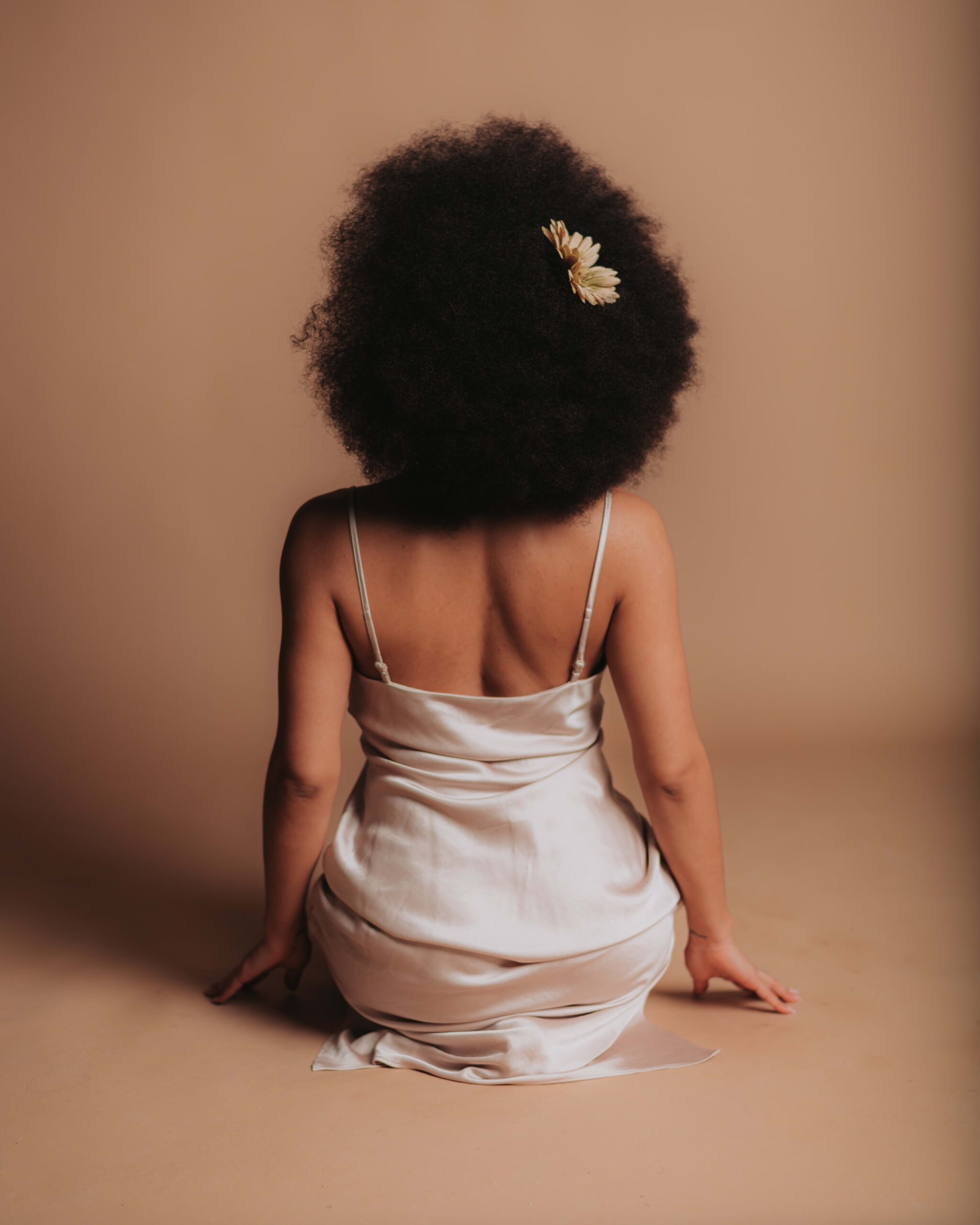Romney, Corriedale, Polwarth, Gotland, Valais, English Leister, Arapawa and East Friesian… these names rattle off fashion designer Liz Mitchell’s tongue with obvious delight.
Her journey to becoming “The Wool Activist” has led to the discovery that these breeds of sheep, and many more, call New Zealand home and produce wool with “an amazing palette, no dyeing and no chemicals”.
“I’ve been working with the natural colour range of black and brown sheep fibre. We’re developing luxury handknits with hand spun yarn straight from the fleece,” she enthuses.
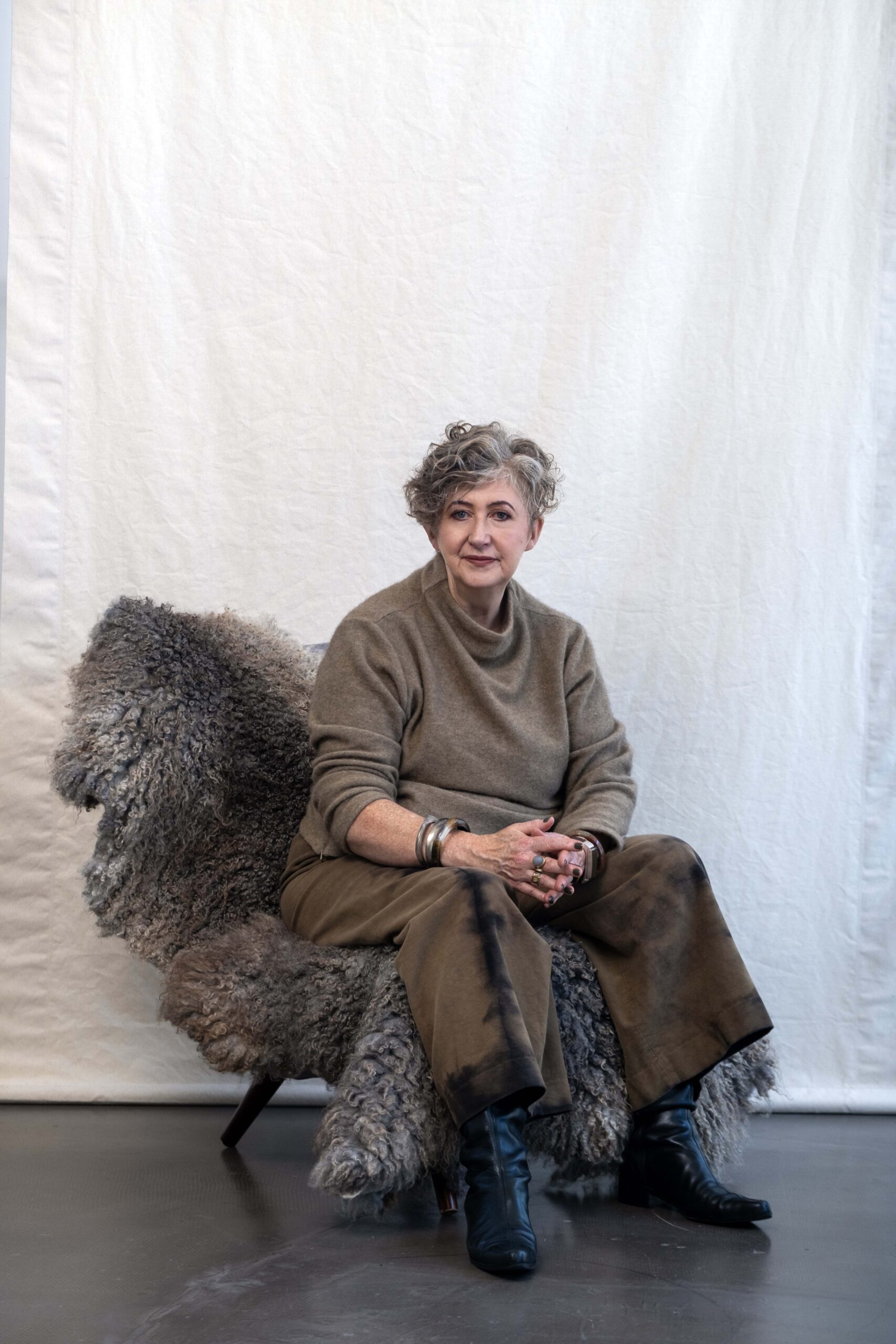
The first time Liz got to put her hands into a freshly shorn warm fleece “something ignited and connected within her”. She took away four bags of wool, which needed to be scoured and spun and after much research and asking around, found a woman in Kaukapakapa who was able to help her with both.
Liz is best known for her red carpet gowns and high profile made-to-measure clients including former Prime Minister Helen Clark and actress Keisha Castle-Hughes, but has spent the past four years learning about felting, tracking down “mini mills” and along the way become a Campaign For Wool ambassador. And in an effort to remedy New Zealand’s dwindling fibre industry and lack of textile courses available due to increased offshore production, she was recently awarded a grant from Agricultural and Marketing Research and Development Trust (AGMARDT) to reignite engagement in what was once New Zealand’s greatest export.

With these funds, Liz has sourced new felting machinery and is in the process of establishing a Textile Hub at Corban Estate Arts Centre for the purposes of promoting wool research and creativity. Hosting wool-focused craft workshops fortnightly, Liz is inspiring her community to join her in designing a regenerative future for the next generation. And she couldn’t be happier.
And while she’s a long-time fan of the fibre her passion in recent years has become a crusade. After all, it seems incredulous that some farmers are dumping wool and investing in self-shedding sheep breeds at a time when synthetic textiles are suffocating the planet not only at retail and in landfills, but literally at a microplastic level.
Mitchell’s goal is to reignite worldwide appreciation for wool with the ambition of positioning Aotearoa’s strong wool as a sustainable and regenerative resource and return wool design to the international forefront. And she is not alone. There are wool warriors across the motu when you start looking as well as incredible innovation in the strong wool space. It feels like we’re on the brink of a wool renaissance.
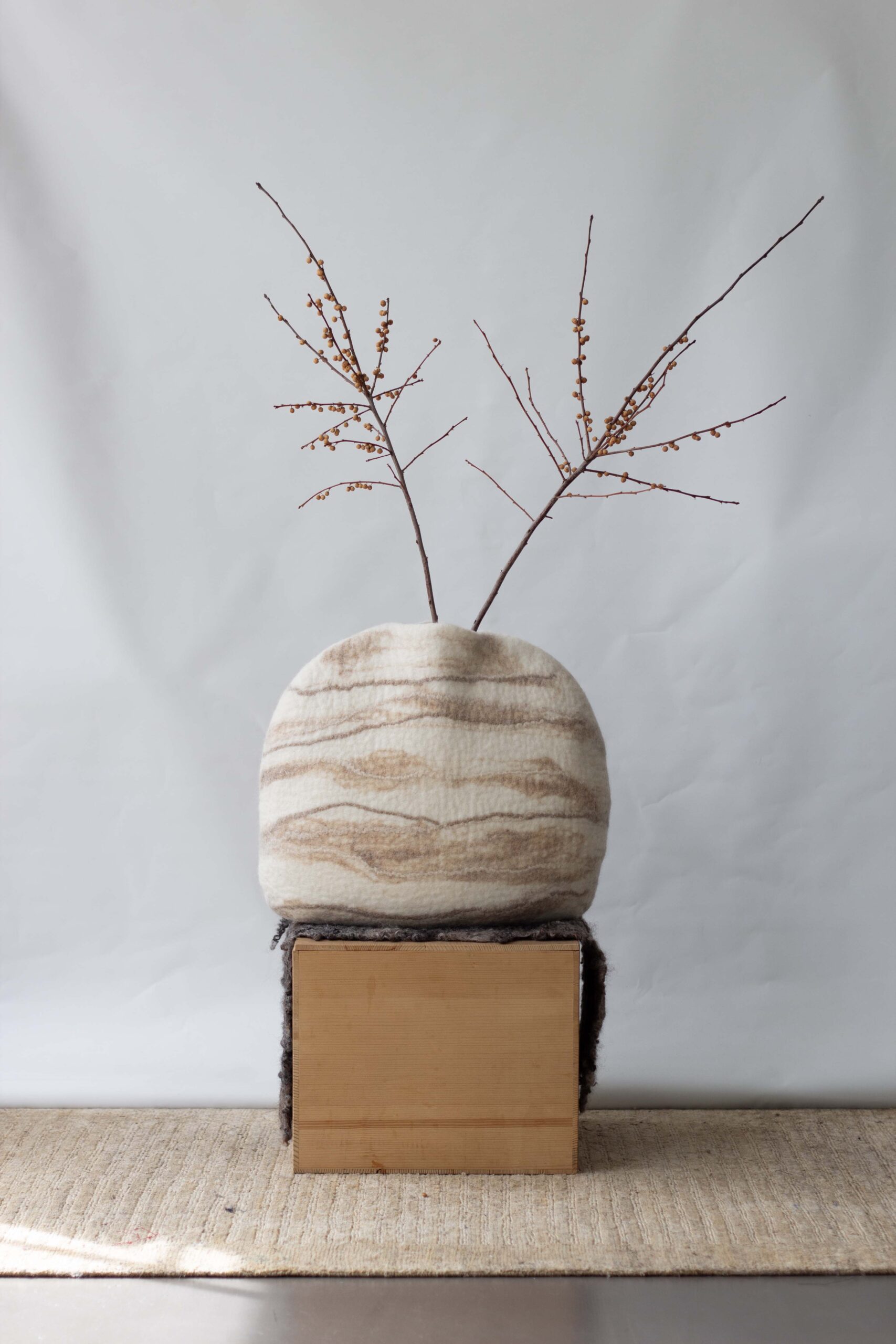
Wool innovation
Campaign for Wool NZ (CFWNZ) is calling for people to champion the wool revolution and actor Sir Sam Neill has just joined the CFWNZ as an ambassador, lending his name and profile to educate and advocate for New Zealand strong wool. Demand for the strong wool fibre is also coming from new categories, not just carpet.
“If wool had been ‘discovered’ today it would be considered a miracle fibre,” says Polly McGuckin of Exquisite Wool Blankets which is also the distributor of Natural Legacy woollen caskets and urns to funeral homes through New Zealand.
Floc is making the world’s first 100 per cent New Zealand wool acoustic wall panelling made from strong wool. The panels can absorb sound, regulate temperature and improve air quality as well as being a natural fire retardant.
Wool engineering company Shear Edge and outdoor adventure retailer Torpedo7 have also produced a kayak – the Kakapo – which uses New Zealand strong wool to replace 2kg of plastic in the hull, the equivalent of 400 plastic bags.
New Zealand strong wool is also being used for wool planters which are both kinder to plant and the environment. Sustaina Grow wool garden blankets make for great weed mats that eventually break down, adding nutrition to the soil.
Locally Wisewool, fifth generation wool handlers are carrying on their family legacy, working with 200+ farmers in the Gisborne region to create engineered wool as an ingredient brand to add natural value to products, such as Kind Face pillows and duvets – which provide a better sleep because they’re temperature regulating.
Simply put, Wisewool is engineered by intertwining wool fibres into tiny spring-like buds that enhance its inherent bounce and resilience while retaining wool’s incomparable natural attributes.
“You can do anything with wool and we have a passion amongst our fifth generation coming forward into the business to maintain this amazing fibre and make it the new golden fleece of the world,” says Wise Wool’s Henry Hansen, 4th generation wool handler.
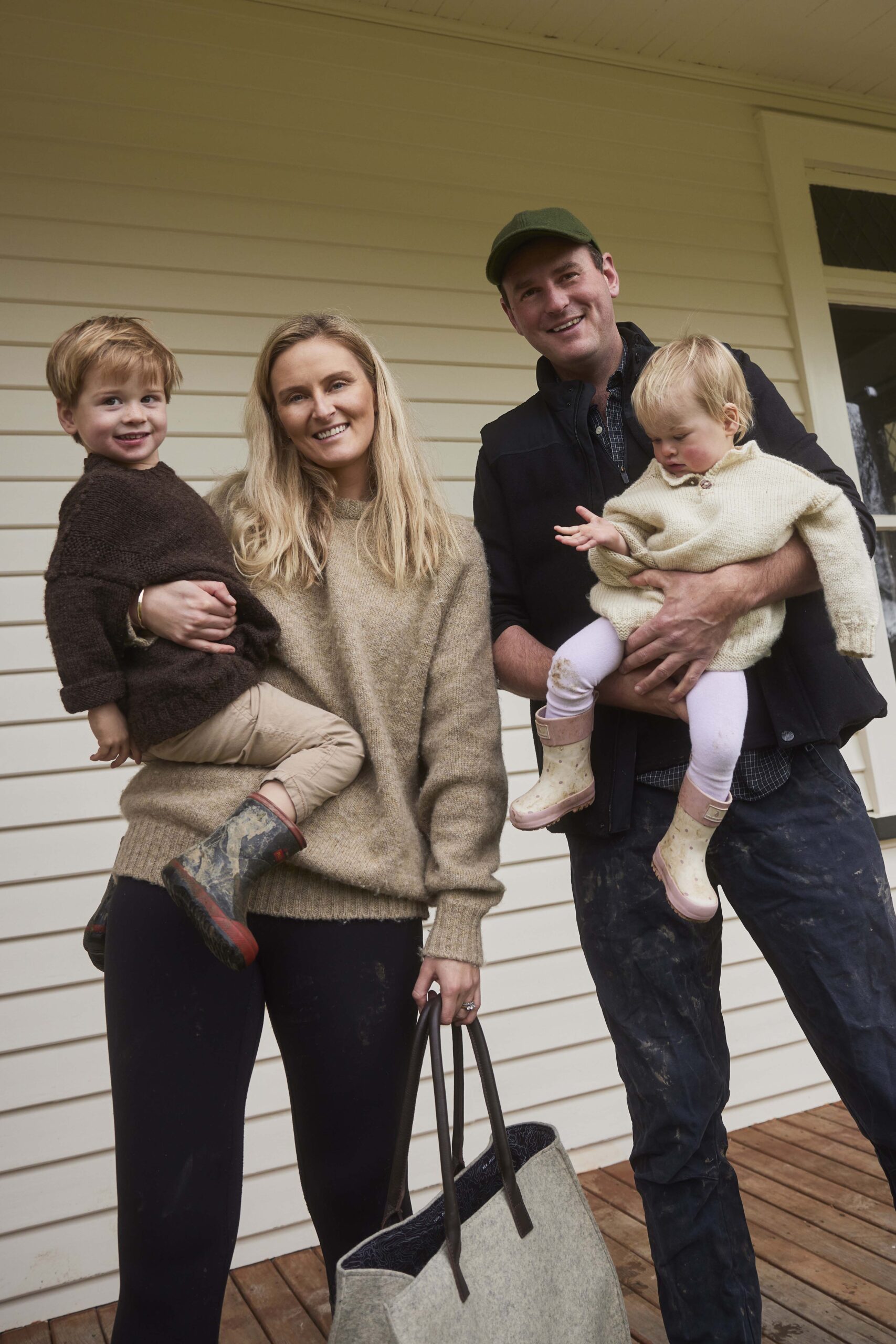
Honest Wolf
One couple who believe in strong wool is Sam and Sophie Hurley, third generation farmers at Papanui Estate near Hunterville. The 3,300 hectare property has been a thriving working farm for the past 80 years and they hope it will remain that way for at least another century or two. Papanui has more than 25,000 Romney Kelso sheep who produce over 170 tonnes of wool every year.
In the days before plastic, wool was a big income earner which enabled Sam’s grandfather to purchase the farm. Today, wool prices are the polar opposite of those golden days, but Sophie and Sam aim to change that.
When plastic bags were banned they saw an opportunity for a wool fibre shopping bag which would naturally regulate the temperature of the food inside.
That led them down the path of creating Honest Wolf, a range of sustainable wool felt accessories – totes, handbags, duffle bags, backpacks, work bags and wallets – using their own wool.
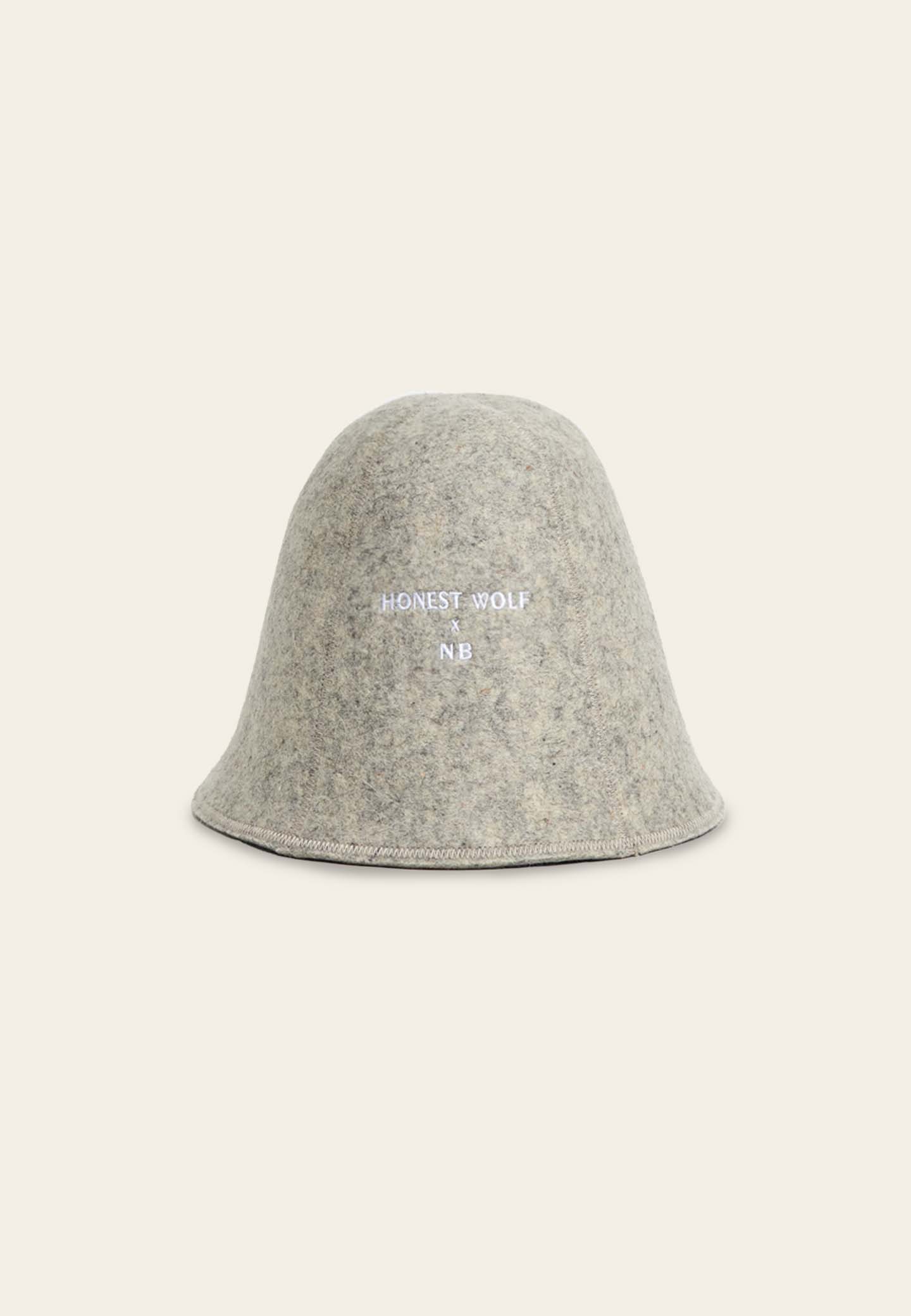
They have also created a Honest Wolf x Friends sideline that is producing some wonderful collabs and innovations such as the Honest Wolf x Nigel Beach Sauna hat.
Nigel Beach is a sports performance coach who works with professional athletes including the All Blacks and because of the temperature regulating properties of wool the Sauna Hat can prolong steam sessions, helping to improve cardiovascular health by increasing heart rate and blood flow.
Honest Wolf has also just collaborated with organic baby sleepwear brand Woolbabe with whom they have created a wool Moses basket designed to be passed through generations and which has been two years in the making.
“It’s made with a natural breathable fibre that’s temperature regulating, water repellent so spills can be easily wiped away, odour resistant and flame resistant – all aspects you want your baby to be surrounded by and it’s biodegradable,” says Sophie.
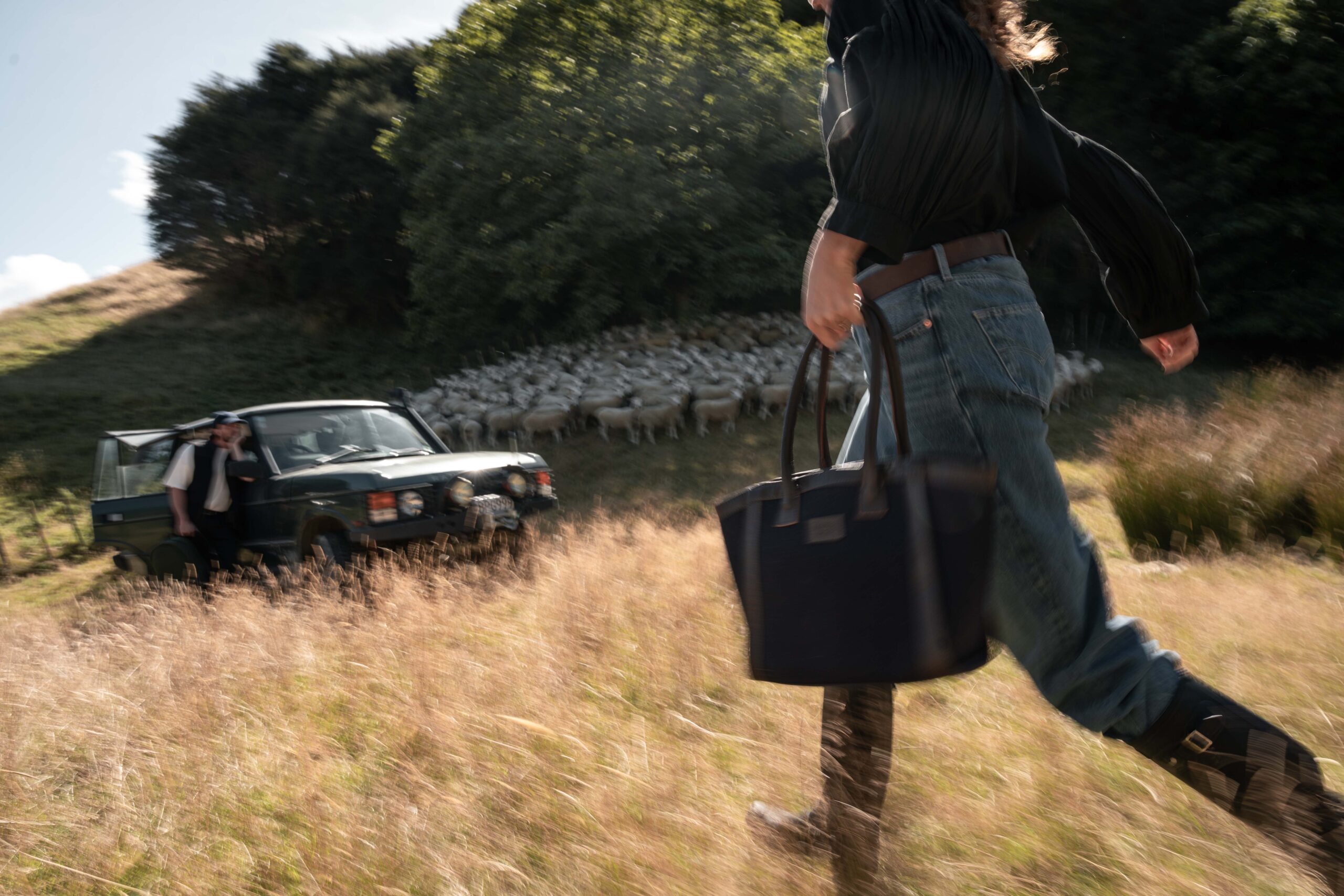
They’re starting to get into corporate gifting too, particularly following the #senditback campaign in the rural sector when farmers were being gifted the ultimate insult – beanies made from synthetic fibres.
Liz Mitchell is also innovating with her design-centric approach, creating outstanding felted wool homewares.
Her recent exhibition at the Corban Estate Arts Centre Homestead Galleries – This Raw Material – paid tribute to wool as a regenerative, sustainable, non-allergenic, biodegradable, versatile, abundant, creative, and life-enhancing raw material.
Wool was also the star and focus of her 2023 catwalk presentation at New Zealand Fashion Week and she was a judge for a second time at this year’s WoolOn awards in Central Otago recently.
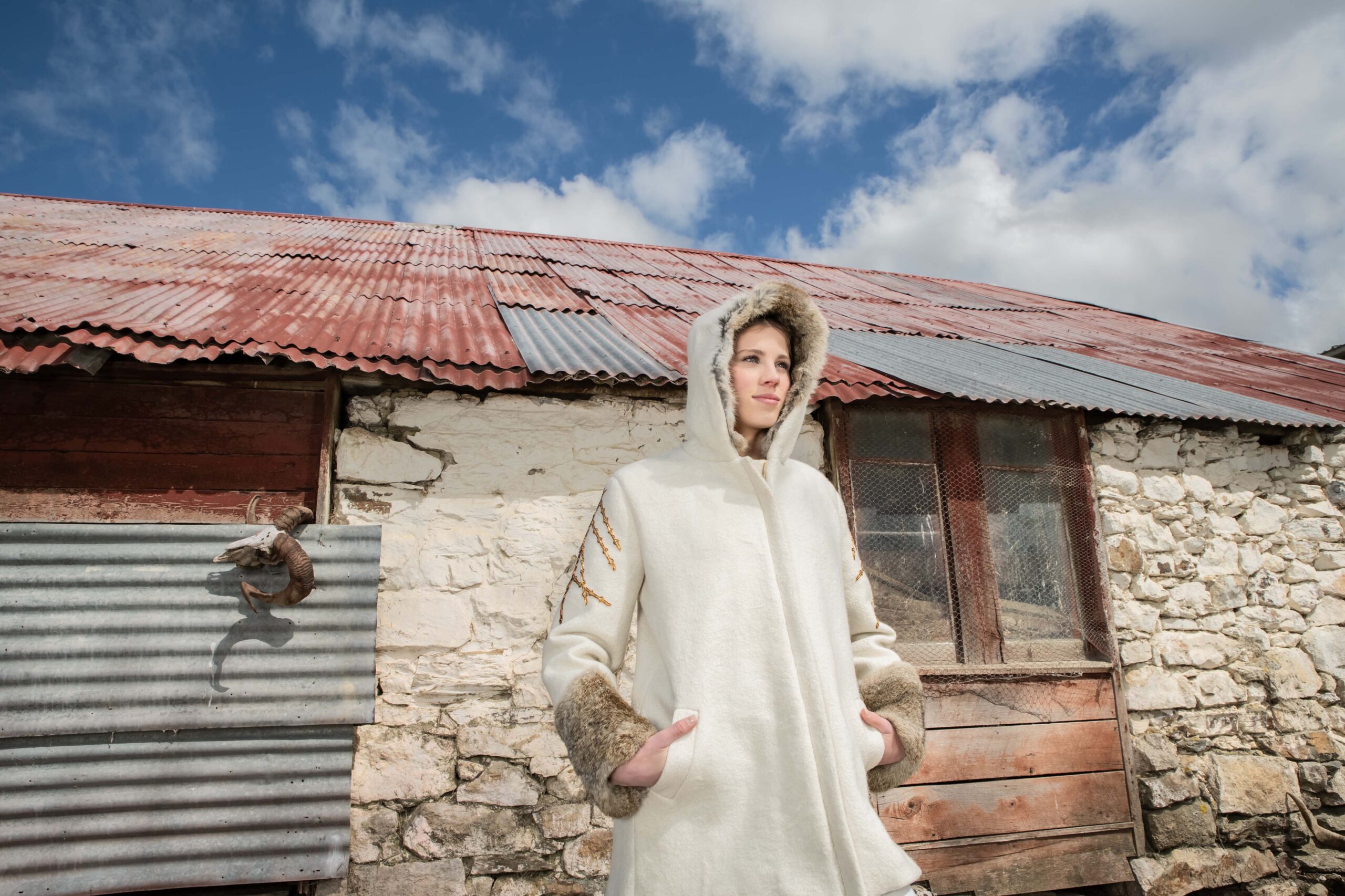
WoolOn
All garments entered into the WoolOn fashion design awards must be 75 per cent wool and while the competition has been around since 2004 it’s experiencing a renaissance of its own with a strong team of volunteers who are committed to showcasing and developing wool design and artistry.
Last year’s WoolOn menswear award winner Becs Calder has been entering the awards since 2011 and lives on Lauder Station with her husband Robbie. She took inspiration from the Scottish owners of their station in the 1800’s, creating a mix up of their traditional dress and a suit.
She restyled a 100 per cent wool suit from Savemart along with two merino jumpers. The kilt is the suit pants combined with a 100 per cent wool throw.
2023 WoolOn supreme award winner Jane Avery collaborated with Dayna and Callum Paterson of Ida Valley Station who supplied their top-quality merino fleece, which was hand felted by master felter Shona Schofield of Ashburton. The trousers and tops supporting Jane’s three coat entries are a merino/silk blend utilising wool from Middlehurst Station in the Marlborough high country. Shona saw it as an opportunity to create a capsule collection showcasing truly unique materials with “paddock to person” story and integrity.
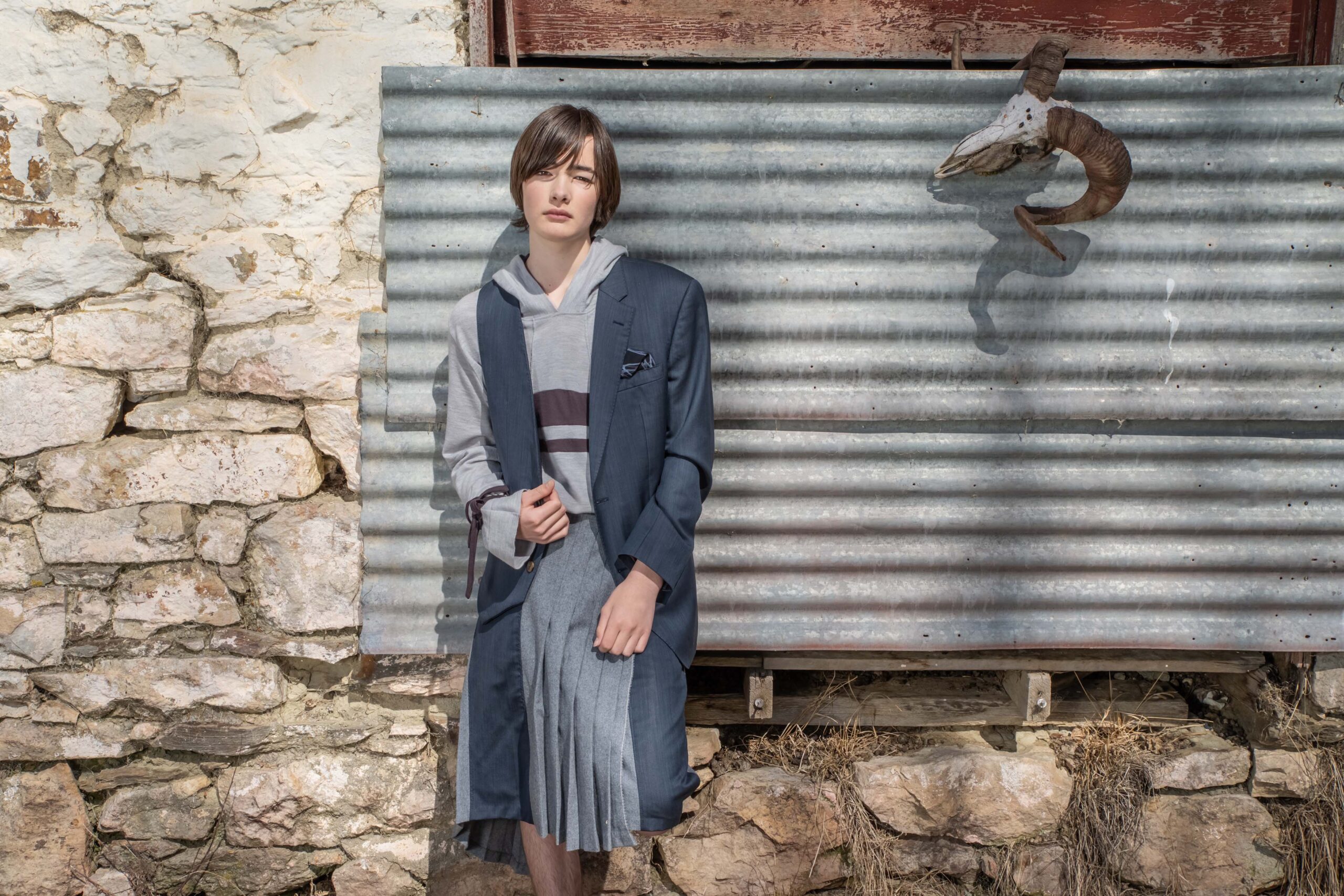
Looking ahead
According to advocacy group Wool Impact, who are on a mission to reinstate demand and value for New Zealand’s strong wool and wool growers, if predictions of domestic brands actively advocating for wool in their product ranges are realised, strong wool use in New Zealand over the next two years will double and by 2028 could consume around 40,000 tonnes of a total 100,000 tonnes of clean wool produced annually.
Wool Impact is connecting value chains, innovation and research investment and advocacy groups with the goal that strong wool growers have sound market intelligence and pricing signals that sure up their investment in wool.
“We are seeing consumers habits change as they look for sustainable materials,” says Andy Caughey, Wool Impact CEO. “Big brands internationally are looking to natural fibres as a safe, healthy, fibre alternative.”




